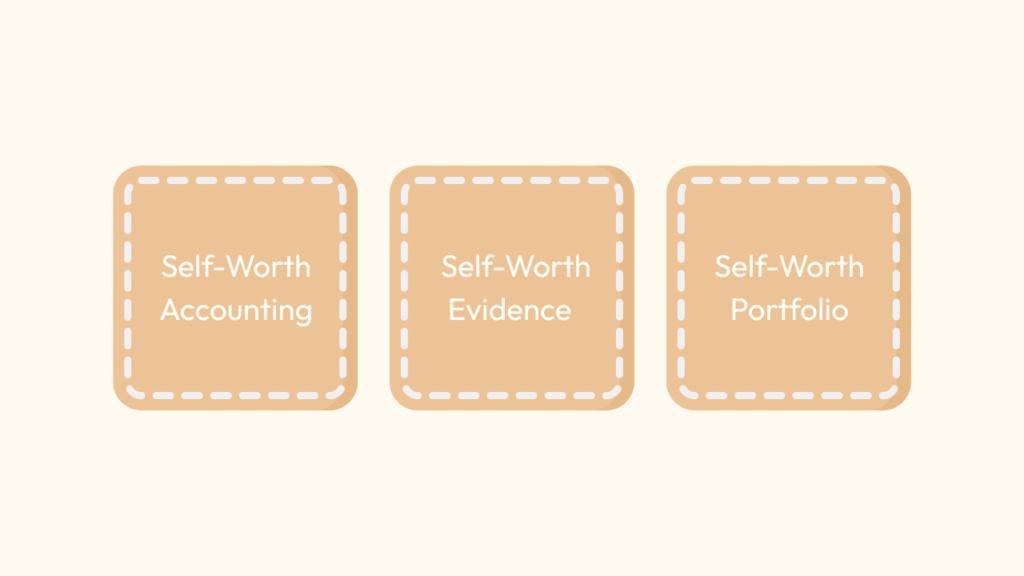There’s a particular kind of mental math we all do, usually without realizing it. We add up achievements, subtract failures, and calculate whether we’re worthy of respect, love, or even basic self-acceptance.
The equation feels logical: land the dream job = valuable person. Write the perfect book = deserve happiness. Get 500 likes = temporarily acceptable human.
In essence, your brain treats self-worth like a balance sheet because of how it learned to navigate social rewards. This is called conditional self-worth and it’s surprisingly destructive. So why does our brain default to this exhausting scorecard system?
The Psychology of Conditional Self-Worth
In the late 1980s, Psychologist Edward Higgins discovered we carry three versions of ourselves: who we are, who we want to be, and who we think others expect us to be. The bigger the gap between these selves, the worse we feel and the more desperately we chase achievements to close it.
This system gets wired early, with our dopamine circuits connecting external rewards to self-value. As kids, we learned that good grades = proud parents, winning = attention, being helpful = love. Jennifer Crocker and Connie Wolfe called these “contingencies of self-worth”, specific domains where we’ve learned to stake our entire sense of value.
The fear of not being worthy can drive short-term motivation, but research shows it ultimately increases anxiety, depression, and burnout. You become only as good as your last win, trapped in a cycle where the very pressure to prove your worth sabotages your ability to perform.
Fortunately, it’s possible to break free from this toxic form of mental accounting by decoupling your sense of self-worth from your performance.
Building a Self-Worth Operating System
Rewiring deeply ingrained conditional self-worth patterns isn’t easy, but it can have an outsized positive impact on your mental health. Here are three research-backed approaches that actually work.

1. Notice the self-worth accounting. Most conditional self-worth happens on autopilot. A meeting doesn’t go well and you’re suddenly questioning your entire career. Someone doesn’t text back and you feel fundamentally unlovable. The first step is simply noticing when these calculations start running. When you catch yourself doing the mental math (“If this project fails, I’m worthless”), pause and ask: “Is my worth really contingent on this one thing?”
2. Collect counter-evidence. Your brain learned that worth comes from achievement through years of reinforcement. To update this system, you need consistent examples of moments where you are valued without meeting any conditions. Spend time with people who appreciate you for being you, not for what you accomplish. Join communities built around shared interests. Notice how it feels to be valued for your humor, curiosity, or just your presence.
3. Diversify your self-worth portfolio. Instead of betting everything on one aspect of identity, spread your sense of self-worth across multiple domains. If work is a big part of your self-worth, experiment with creative hobbies. If you’re the “smart one,” try activities that highlight other qualities. Start small: take an improv class, join a hiking group, volunteer somewhere meaningful.
Breaking free from conditional self-worth takes time. You’ve spent years learning that your worth is tied to your performance, and that pattern won’t disappear overnight.
But here’s what happens when you start to separate the two: you take risks without betting your entire identity on the outcome. You stop treating setbacks like a personal crisis. You get back up faster because falling down doesn’t mean you’re fundamentally broken. Your brain stops wasting energy on constant self-evaluation and starts focusing on the work itself.
